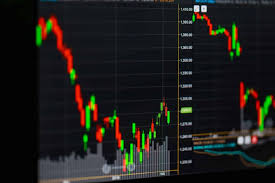
In the world of forex trading, understanding the mechanics of swaps is essential for all traders. Forex swaps, also known as rollover rates, are a crucial component of trading that can significantly affect your overall profitability. To dive deeper into this concept and enhance your trading knowledge, it’s beneficial to consult resources such as what is swap in forex trading Trading Area NG.
What is a Forex Swap?
A forex swap refers to the interest paid or earned for holding a currency position overnight. In forex trading, when a trader opens and holds a position beyond market hours, they may incur a swap charge or receive a swap credit. This interest is derived from the difference between the interest rates of the two currencies being traded in the pair.
The Mechanism of Forex Swaps
When you trade currency pairs, each currency has an associated interest rate that is determined by the respective central bank. For example, if you are trading the EUR/USD pair, you are dealing with the interest rates set by the European Central Bank and the Federal Reserve. When you buy a currency pair, you are essentially borrowing the first currency to buy the second one.
If the currency you are buying has a higher interest rate than the one you are selling, you may earn a positive swap. Conversely, if you are borrowing a currency with a higher interest rate, you will incur a negative swap fee. Swaps are typically calculated at 5 PM EST when the forex market closes for that day, and they will affect the next day’s trading results.
Why Swaps Matter in Forex Trading
Swaps can have a significant impact on your trading strategy, particularly for long-term traders. Here are several reasons why understanding forex swaps is crucial:
- Cost Management: The costs associated with swaps can affect the overall profitability of your trades. Traders need to consider these costs when entering positions that they anticipate holding for extended periods.
- Impact on Currency Selection: Currency pairs with varying interest rates can influence a trader’s choice of which pairs to trade. A trader may prefer to trade pairs with a more favorable swap scenario that aligns with their trading strategy.
- Long-Term Trading Strategies: For traders who hold positions overnight, the impact of swaps becomes more pronounced. Positive swaps can enhance returns, while negative swaps can diminish profitability. This is particularly relevant for carry trading strategies, where traders look to benefit from interest rate differentials.
Factors Influencing Forex Swaps
Several factors can impact the swap rates in the forex market:
- Central Bank Interest Rates: Changes in interest rates set by central banks will directly affect swap calculations. When central banks raise or lower interest rates, it can result in increased or decreased swap rates for traders.
- Market Conditions: Fluctuations in market conditions and economic indicators can influence how currency pairs behave. For instance, heightened volatility may lead to less predictable swap rates.
- Broker Policies: Different forex brokers have their policies and methods for calculating swap rates which can vary significantly. Traders should familiarize themselves with their broker’s swap rates and conditions.

How to Calculate Swap Rates
Calculating swap rates can seem complex, but many brokers provide this information transparently on their trading platforms. However, understanding how to do the calculation manually can provide deeper insights:
The formula to calculate the forex swap is as follows:
Swap = (Lot Size * Swap Rate * Number of Nights) / 10
Where:
- Lot Size: The size of the trade you have placed.
- Swap Rate: The overnight interest rate difference between the two currencies.
- Number of Nights: The duration for which the position is held overnight.
Strategies for Managing Swaps
There are several strategies traders can use to manage swaps effectively:
- Choose Your Pairs Wisely: Opt for trading pairs with favorable swap rates. If you are holding positions overnight, selecting pairs that provide positive swaps can enhance your trading results.
- Close Positions Before Rollovers: If a swap is negative and affecting your profits, consider closing your positions before the market closes for that day. This way, you can avoid the swap fee.
- Utilize Swap-Free Accounts: Some brokers offer Islamic accounts that do not involve swap rates, adhering to Sharia law. These accounts can allow traders to avoid interest-related fees altogether.
Conclusion
Understanding what a forex swap is and how it works is essential for traders looking to optimize their trading strategies. By incorporating swap considerations into your trading plan, you can manage costs effectively and enhance your profitability. Whether you are a day trader or a long-term investor, recognizing the implications of swap rates can help you make informed decisions in the forex market.



